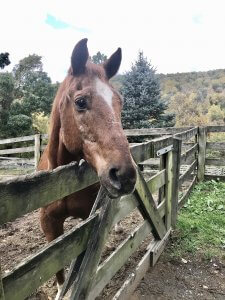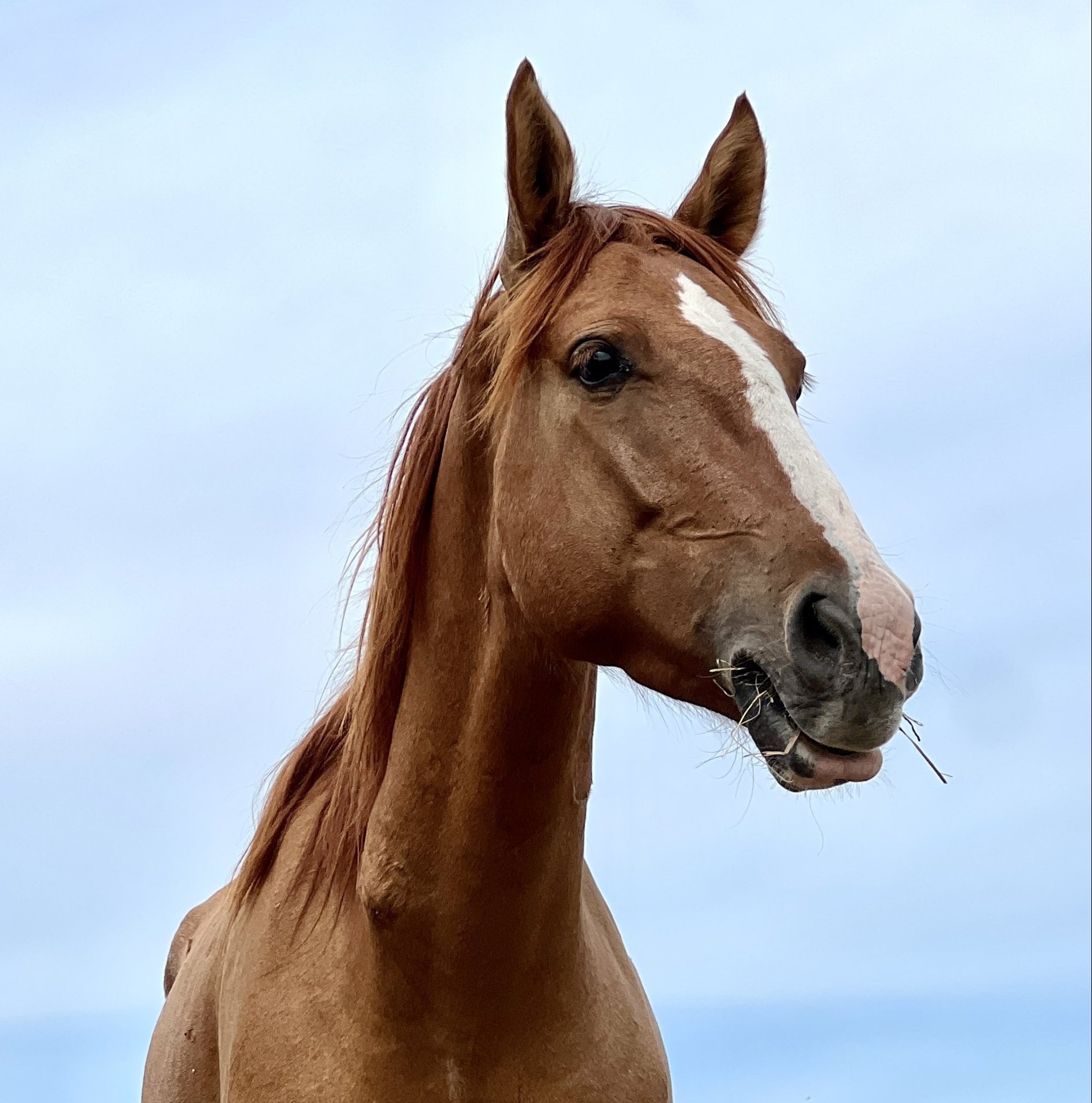
A couple of weeks ago, my daughter Stephanie surprised me by sharing the news that one of her essays had been accepted for publication in Promethean, the literary magazine of City College, where she teaches. She instructed me to get some tissues; I would need them when I read her piece. I was glad for the heads-up. She’d written about Ray, our horse.
Over the years, raising our children to care for and respect animals, my husband and I welcomed quite a few pets into our family: one Great Dane, one spaniel mix, three Newfoundlands, two parakeets, one rabbit, two goldfish (one who lived over ten years!), three guinea pigs, and one green tree snake. We also loved and admired the raccoon who raised her babies in the loft over our detached garage, the bats who raised a community in the bat house the previous owner left for us, the skunk who lived under our deck, and the deer who ate everything we planted. (The kids and I decided the deer were more interesting than the lilies, so we did nothing to deter them.)
We’ve always been a family of animal-lovers, so it seemed natural when we added Ray to the mix. However, our kids’ other passions—softball, baseball, music, and dance—kept them away from the barn. They visited Ray when they could, but their hearts were elsewhere. What I didn’t understand, though, was that their limited time with Ray had an incredibly powerful and long-lasting effect.
In Stephanie’s essay, she writes about her initial fear of him: “As a tiny eight-year old, he scared me, but I so badly wanted to love him… I had to figure out how to be Ray’s sister.” She then explores all she learned from him: how not to panic when a horse steps on your foot, how to swipe away the dirt after a good currying (it’s “all in the wrist”), how to push through your fears, how to receive and give love with a giant, open heart.
A few days ago I had the chance to catch up with 13 Hands staff member, Alison Appleby, whose two young boys, Sawyer and Holden, are growing up with the same appreciation for animals as my children’s. Alison believes that horses, in particular, “feel your energy,” and some are truly tuned in to kids. Those of us who’ve seen kids and horses interact have witnessed this: a horse who is somewhat mouthy or a little pushy around adults will be super gentle with children, and a horse who loves to run will walk slowly and steadily with a young rider in the saddle. It’s often inexplicable—how the horse just knows. And the reverse is true, too. Some children have a deep, innate connection to horses from the minute they meet them. Alison says that’s the case for Holden, her younger son, who, she says, “has always had that.”
Bringing kids and horses together takes some planning. At the very least, like adults, kids need to learn the basic practices which will help keep them safe. That said, the rewards for kids who are encouraged to connect with horses are endless: personal growth, character development, the willingness to take on responsibility, the eagerness to confront and work through fear, the fostering of kindness, compassion, selflessness.
Stephanie closes her essay with a description of the photo we took when all three of my grown kids came to say their goodbyes to our beloved horse: “In that photo, I know how to confidently stand next to Ray. I know how to…grab his nose and pull it close to my face without hesitation, to kiss his cheeks warmly. And he knows how to let me.” Yep—the tissues were a good call.
It’s a hard fact that when you foster the love for a horse in a child, the child will at some point say goodbye to that horse. But the power of that relationship is forever.
Thank you, Steph, for reminding me.



